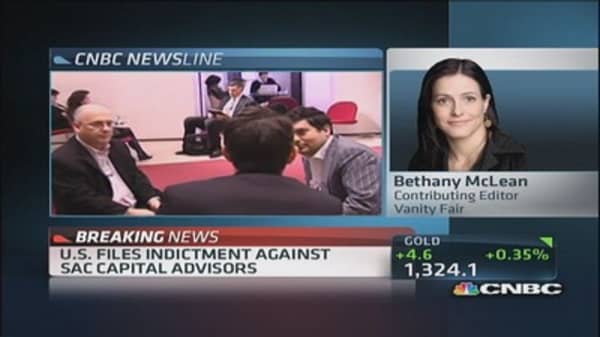Indicting a company can be a death sentence, regardless of the firm's innocence. Take Arthur Andersen.
In 2002, the "Big Five" accounting firm was indicted on charges of obstructing the SEC's Enron investigation by destroying documents around the time of Enron's collapse. The Andersen partner in charge of the Enron audit, David Duncan, had already pleaded guilty and agreed to testify against his former firm.
The indictment alone killed Andersen since it could no longer audit public companies. Some 28,000 employees lost their jobs.
Thursday's indictment of SAC Capital Advisors revived memories of the Andersen case.
Read more: SAC Capital Advisors indicted by a federal grand jury)
Andersen's legal team believed it had a deferred prosecution agreement with the head of the Enron Task Force that would have allowed the company to avoid indictment and continue doing business, but higher-level officials in the Justice Department nixed the deal.
Prosecutors argued that a major part of Andersen's motive to obstruct the investigation was that it was already on notice from the SEC following accounting issues with clients Sunbeam and Waste Management. That was also a major rationale for prosecuting the firm.





